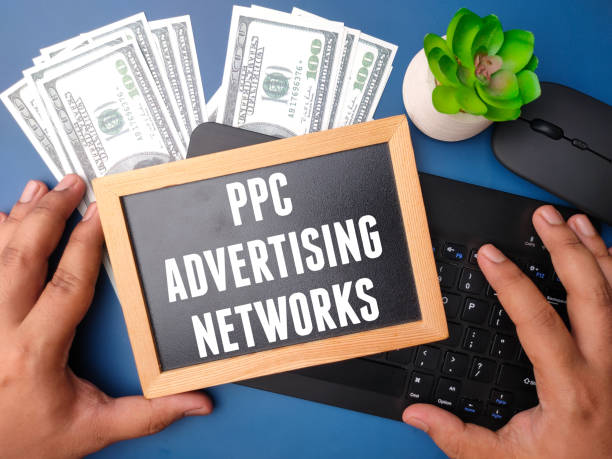When running a pay-per-click campaign, choosing the right PPC keyword is one of the most important decisions you will make. Your keywords influence everything from your ad performance to the return on investment your campaign delivers. Selecting strategic keywords does not just impact your campaign—it determines its success.
This article will guide you through the process of identifying the right PPC keywords to drive better results for your business. Let us get started.
What Is a PPC Keyword?
A PPC keyword is a specific word or phrase advertisers bid on in a pay-per-click campaign. These keywords help connect your ad to the searches users perform online. If you choose the right PPC keyword, your ad will appear in front of people who are actively looking for what you offer.
However, selecting ineffective or irrelevant keywords can lead to wasted ad spend and low conversion rates. Understanding how keywords work is critical to designing successful campaigns.
Why Keyword Selection Matters in PPC Campaigns
The success of your PPC campaign depends heavily on the keywords you target. If your keywords are too broad, you may attract irrelevant traffic. If they are too specific, you could miss out on a significant portion of your audience.
Choosing the right PPC keyword ensures that:
- Your ads reach the right audience.
- Your ad spend generates actual results.
- You maintain a competitive edge against other advertisers.
Keyword selection is the backbone of a successful campaign. Now, let us dive into the process.
How to Identify the Best PPC Keywords
1. Understand Your Target Audience
Start by researching who your ideal customers are. What terms do they search for? What problems are they trying to solve? Use this information to generate potential keywords that match their intent.
For example, if you sell organic skincare products, your audience may search for phrases like “chemical-free face cream” or “natural moisturizers for dry skin.”
2. Use Keyword Research Tools
Keyword research tools are excellent for discovering new ideas and evaluating their potential. Tools like Google Keyword Planner allow you to see search volume, competition levels, and cost-per-click data for different keywords.
Look for keywords with:
- High search volume (but not too high).
- Moderate competition to balance cost and visibility.
- Relevant search intent for your business.
3. Analyze Competitor Keywords
Competitors in your industry can provide valuable insights into effective keywords. Tools like SEMrush or SpyFu allow you to see what keywords other advertisers in your niche are bidding on.
By identifying gaps or opportunities in their strategy, you can create a stronger campaign.
Types of PPC Keywords to Consider
1. Broad Match Keywords
Broad match keywords help you reach a wider audience. They trigger ads for related phrases, even if the exact keyword is not used in the search query.
For example, if your keyword is “digital marketing services,” your ad might show for searches like “online marketing strategies.”
2. Phrase Match Keywords
Phrase match keywords allow your ad to show only when the exact phrase appears in the search query. This provides a balance between reach and relevance.
For example, a phrase match for “affordable laptops” would include searches like “affordable laptops for students” or “where to buy affordable laptops.”
3. Exact Match Keywords
Exact match keywords trigger ads only when the precise keyword is used in the search query. This ensures maximum relevance but may limit reach.
For instance, an exact match for “buy men’s running shoes” will not appear for variations like “running shoes for men.”

The Role of Negative Keywords
Negative keywords prevent your ads from showing for irrelevant searches. For example, if you sell high-end headphones, you might use “cheap” as a negative keyword to avoid unqualified traffic.
This technique helps you:
- Save money on wasted clicks.
- Focus your budget on qualified leads.
- Improve the overall performance of your campaign.
Balancing Keyword Cost and Performance: PPC Keyword Selection
1. Evaluate Cost-Per-Click (CPC)
The cost-per-click for a keyword determines how much you will pay when someone clicks your ad. High-CPC keywords can be worth the investment if they deliver strong returns.
However, balancing cost and performance is key. Use analytics to monitor how much each keyword contributes to your campaign’s profitability.
2. Focus on Long-Tail Keywords: PPC Keyword Selection
Long-tail keywords are longer, more specific phrases that typically have lower competition and CPC. While they may attract less traffic, they often lead to higher conversion rates because they match user intent more closely.
For example, instead of targeting “laptops,” try “best laptops for graphic designers under $1000.”
Testing and Refining Your PPC Keyword Strategy
1. Conduct A/B Testing
Testing is essential to improving your campaign over time. Use A/B testing to compare the performance of different keywords and ad copy combinations.
This helps you:
- Identify which keywords generate the most conversions.
- Adjust your bids to maximize return on investment.
2. Monitor Campaign Performance
Regularly review your campaign metrics, such as click-through rate (CTR), conversion rate, and return on ad spend (ROAS). Use this data to refine your keyword strategy and eliminate underperforming terms.
Common Mistakes in PPC Keyword Selection
1. Ignoring Search Intent
Search intent refers to the purpose behind a user’s query. Failing to align your keywords with user intent can result in low-quality traffic.
2. Overlooking Negative Keywords: PPC Keyword Selection
Neglecting to use negative keywords can lead to wasted ad spend on irrelevant searches. Always update your negative keyword list based on campaign performance.
3. Relying Solely on Broad Match Keywords
While broad match keywords have their place, relying on them too heavily can reduce your campaign’s efficiency. Mix in phrase and exact match keywords for better control.

The Connection Between PPC Keywords and Ad Copy: PPC Keyword Selection
Your PPC keyword strategy should guide your ad copy. By including your keywords in headlines and descriptions, you make your ad more relevant to users. This also improves your Quality Score, which can lower your cost-per-click.
How PPC Keywords Impact Landing Pages: PPC Keyword Selection
Do not stop at the ad. Your landing page should also reflect your PPC keywords. When users click your ad, they expect the content to match their search intent.
Ensure your landing page includes:
- The same language as your ad copy.
- Clear calls to action that align with user expectations.
- A seamless path to conversion.
Measuring the Success of Your PPC Keyword Strategy
Success in PPC keyword selection is not just about clicks; it is about conversions and return on investment. To measure success:
- Track conversion rates for each keyword.
- Calculate the cost-per-conversion to assess profitability.
- Use data to adjust your keyword bids and strategy.
Conclusion: PPC Keyword Selection
Strategic PPC keyword selection can significantly improve the results of your pay-per-click campaigns. By focusing on relevant keywords, analyzing performance, and refining your approach, you can ensure your campaign delivers the best return on investment possible.
Invest time in research, test continuously, and do not be afraid to adapt as you learn. Remember, successful PPC campaigns are built on strong keyword foundations.








